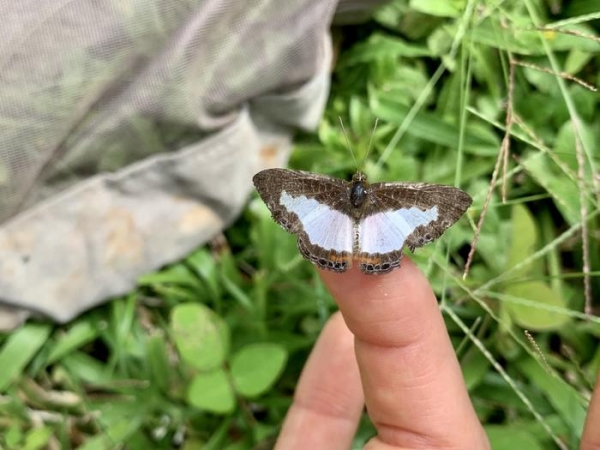Butterflies with smaller or lighter coloured wings are likely to be ‘losers’ when it comes to climate change, with the Lycaenidae family, which contains over 6,000 species of butterflies, the majority of which live in the tropics, found to be particularly vulnerable.
Butterflies with larger or darker coloured wings are likely to fare better under increasing temperatures, but only to a point. Researchers say these butterflies could still experience dramatic declines if there were sudden heatwaves or if cool microclimates were lost through deforestation.
The results are published today in the Journal of Animal Ecology.
Butterflies rely on the sun’s warmth to give them the energy they need to function. They use ‘thermoregulation’ strategies to maintain a balanced body temperature against changing air temperatures.
Read more at: University of Cambridge
Esme Ashe-Jepson conducing fieldwork in Panama, with a Juditha caucana butterfly from the Riodinidae family. (Photo Credit: Esme Ashe-Jepson)


